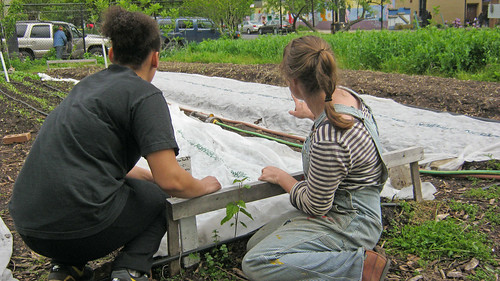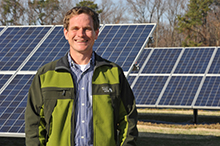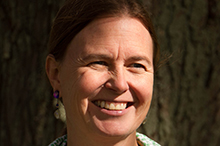
The White House recently recognized 12 Champions of Change for their leadership in sustainable and climate-smart agriculture. This week we will meet them through their USDA Regional Climate Hub, today featuring the Northeast’s Anita Adalja, Herman “Trey” Hill and Jennifer “Jiff” Martin.
USDA’s Northeast Regional Climate Hub works to bring land managers in the Northeast the science and other tools that can help them adapt to changing weather/climate conditions. Many farmers, ranchers and land managers are already leading efforts to develop and demonstrate the value of sustainable agricultural practices that benefit soil, air, and water quality while helping to mitigate climate change by reducing emissions. Educators and advisors have also been crucial in bringing science-based, sustainable, and climate-informed agricultural practices to the agricultural community.
The Northeast region is home to over 175,000 farms that together produce more than $21 billion in agricultural commodities each year. The agriculture sector is crucial to the Northeast, yet these farms are under threat from a variety of changing climatic conditions. The Northeast Regional Vulnerability Assessment highlights how the increased climate variability impacts agricultural enterprises through more extreme flooding, wetter springs that delay planting, earlier spring-like temperatures followed by frosts that hurt perennial crops (like grapes, apples and cherries), and warmer temperatures causing heat stress in livestock.
The Hubs support the implementation of climate-informed agricultural practices so rural communities and businesses can help slow the effects of climate change while creating jobs, growing the economy, and providing the quantity and quality of food, fuel and fiber needed to meet the needs of the region, nation and world. The hubs rely on the support of early-adopters to help lead the agricultural community down the path of sustainable and productive practices that will conserve our nation’s natural resources.
Three leaders from the Northeast were honored for their work:

Anita Adalja is the Farm Manager at Arcadia Center for Sustainable Food and Agriculture. Arcadia works in the Washington, D.C. metro area to create a more equitable and sustainable food system through sustainable farming, farmer training and farm-to-school education, and increasing access to locally grown food. Under Anita’s management, Arcadia Farm grows thousands of pounds of naturally grown produce that is then sold in low or no food access areas in Washington, D.C. through their mobile farmers’ market program. A social worker by training, Anita previously farmed at One Woman Farm in Gibsonia, Pennsylvania and was the Farm Manager for Common Good City Farm in Washington, D.C.

Herman “Trey” Hill serves as partner and manager of Harborview Farms located in the heart of the Chesapeake Bay watershed. Harborview Farms produces corn, wheat, and soybeans for the Mid-Atlantic region with a focus on sustainable agriculture and environmental stewardship. Under Trey’s direction, Harborview has taken almost 5 percent of its total 12,500 acres out of production because they are environmentally sensitive areas. Harborview Farms uses best practices like no-tillage, nutrient management plans, and planting cover crops on 100 percent of its acres. Trey has embraced the environmental community by serving as a panelist on multiple environmental forums and by hosting a Community Supported Agriculture (CSA) endeavor on his land.

Jennifer “Jiff” Martin is the Sustainable Food System Associate Educator for the University of Connecticut Extension. She has worked for over 12 years on food and agriculture issues in Connecticut, helping residents discover local agriculture, connecting kids to real food to help them grow up healthy and researching community food security in Connecticut’s 169 towns. Her recent work includes leading a team of Extension Educators to assist new farmers in production and farmland management, directing two AmeriCorps service learning programs, and educating consumers through BuyCTGrown.com’s 10% Campaign, where residents and businesses are asked to pledge 10 percent of their food and gardening budget to locally grown products. She was previously the State Director for American Farmland Trust and the Food Policy Director at Hartford Food System.
These Champions of Change are making a difference in the Northeast, and we look forward to working with them, and others like them, to pave the way to a more resilient future.

